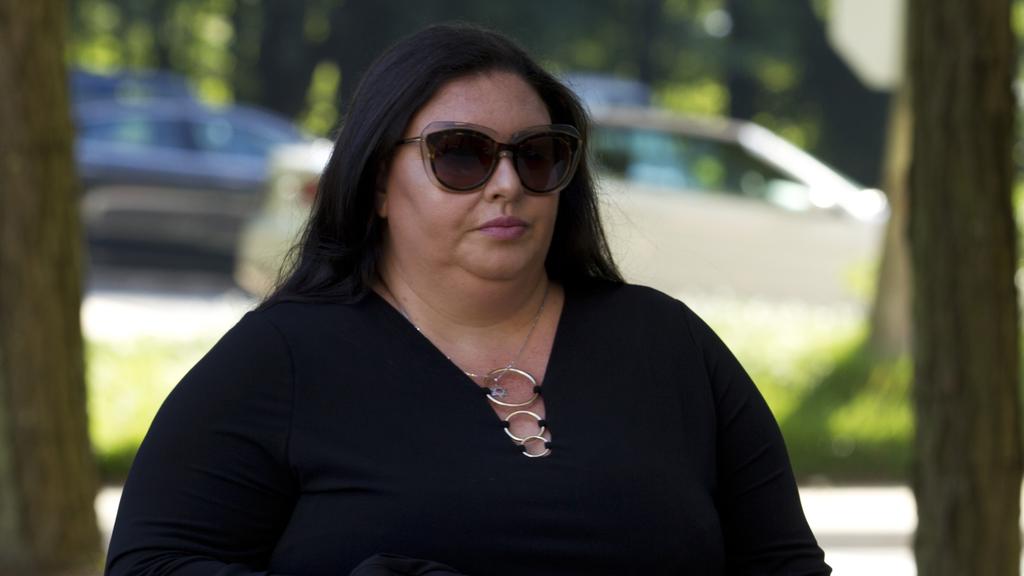Getting your Trinity Audio player ready...
A U.S. court in Maryland sentenced an Israeli woman Thursday to 22 years in prison for orchestrating a scheme that prosecutors said defrauded tens of thousands of investors across the globe out of tens of millions of dollars.
U.S. District Judge Theodore Chuang told Lee Elbaz, 38, her actions cost vulnerable investors their life savings, homes and even their marriages.
"This was a very significant crime with significant harm to victims," the judge said.
In August, a federal jury in Greenbelt, Maryland, convicted Elbaz of three counts of wire fraud and one count of conspiracy to commit wire fraud. Each count carries a maximum sentence of 20 years in prison.
Elbaz, who had been free on bail and living with a relative in San Francisco while awaiting trial, was taken into custody immediately after the jury's verdict.
In a court filing last week, prosecutors said the scheme involving Elbaz and others cost investors more than $137 million between May 2014 and June 2017. But the judge calculated that $28 million was the loss that could be attributed to Elbaz's role in the scheme.
FBI agents arrested Elbaz in September 2017 after she traveled to New York.
Elbaz is one of 21 defendants charged in the fraud case and was the first to be tried. Five pleaded guilty and agreed to cooperate with prosecutors.
Elbaz was CEO of Yukom Communications, an Israel-based company that operated in the "binary options" industry under the brand names BinaryBook and BigOption. A superseding indictment unsealed in November charged 15 people, including two former Yukom Communications company owners, with participating in the fraud scheme involving BinaryBook and BigOption.
The binary options market largely operates outside the U.S. through unregulated websites. The payout on a binary option typically is linked to whether the price of a particular asset, such as a stock, rises above or falls below a specified amount at a particular time, at which point the investor receives either a pre-determined amount of cash or nothing.
Yukom employees pretended to be from other countries, lied about their professional qualifications and adopted "stage names." Elbaz used the alias "Lena Green" while interacting with investors, according to prosecutors.
Yukom employees also falsely guaranteed profits, lied about their rates of return and didn't tell investors that they only made money if their customers lost money, prosecutors said.
An email instructed BinaryBook sales representatives to target retirees, Social Security recipients, pension holders and veterans as clients, according to court filings accompanying guilty pleas by former employees.
Elbaz's indictment cites a September 2015 email from one employee to co-workers about a sales "marathon," a competition to obtain deposits from investors.
"This is not a cemetery here! It's a boiler room!" the employee wrote.
Elbaz trained employees to lie to investors and rigged the odds against them making and recouping any money, Justice Department prosecutor Rush Atkinson said during the trial's closing arguments.
"There is no way this fraud happened without Lee Elbaz," Atkinson said. "Everybody told the exact same lies because that is what Ms. Elbaz trained them to do."
Defense attorney Barry Pollack said Elbaz did not condone any of the fraudulent tactics used by employees who worked under her supervision at a call center in Caesarea, Israel. Elbaz urged her employees in writing to "work clean," her attorney said at the close of the trial.
"The employees that were defrauding clients were also defrauding Ms. Elbaz," Pollack said. "She was trying to prevent (fraud)."




